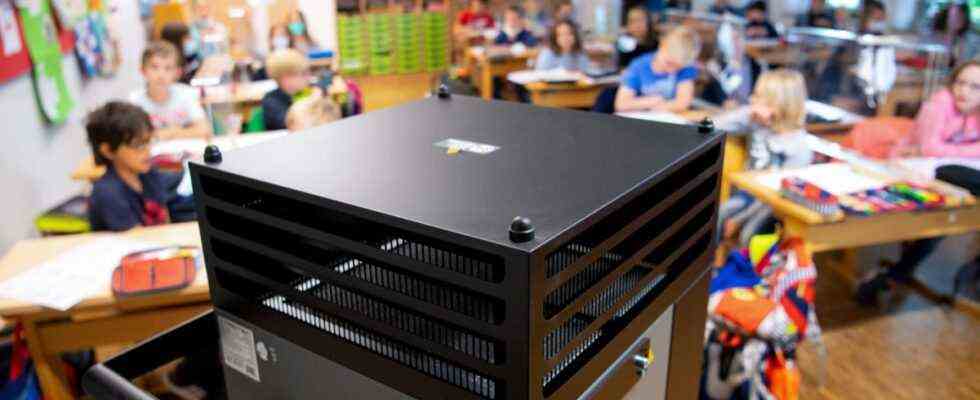For the time being, the district will refrain from equipping all classrooms and specialist rooms in the district’s own schools with mobile air purification devices; A corresponding recommendation to the special school associations, which are responsible for the grammar schools and secondary schools, is not made for the time being. Rather, the committee for building and schools of the district council decided on Thursday afternoon to commission a planning office to inspect all classrooms in the district’s schools, which can only be ventilated manually and are not yet equipped with so-called RLG systems, and to examine individual solutions to keep the risk of infections with the coronavirus for students and teachers as low as possible. In addition, all existing air cleaning devices are to be optimized. The special purpose associations are also called upon to initiate these measures.
The administration of District Administrator Christoph Göbel (CSU) had actually suggested equipping all classrooms and specialist rooms that only have manual ventilation with mobile air cleaning devices and even upgrading those rooms in which there is already a stationary ventilation system. The background to the new approach is a new guideline of the Free State to promote investment costs for technical measures in schools, which came into force on Thursday.
This regulates that not only mobile air purification devices are funded with up to 50 percent of the investment costs, but also so-called ionization and plasma technology to reduce the aerosol concentration, which could now also be used in classrooms in the district. Especially after the sometimes violent criticism of the administration’s proposal to equip the rooms with air purifiers.
This was opened by Ottobrunn’s Mayor Thomas Loderer (CSU), who said that there was absolutely no evidence that air cleaning devices had any added value in rooms that could be “ventilated”. He also criticized the price of 3500 euros per air purifier given by the district administration. In the community of Ottobrunn, the schools have had good experiences with cleaners, but these would have cost more than 4,000 euros each. “So the meaningful conclusion is: We look at all the rooms and where it is really necessary, we buy the really efficient ones,” said Loderer and added: “I refuse to procure the area.”
He received support from Brunnthal’s mayor, Stefan Kern (CSU), who said that there was no point in putting a “placebo device” in every classroom. “The protection will not be effective if we do it blindly without specialist knowledge.” Like Loderer, Kern also emphasized that he was prepared to provide funds for cases in which manual ventilation was not guaranteed. However, this must be done with the expertise of a “room planner”, otherwise both pupils and parents as well as teachers would be led to believe that they are “false security”. Politicians could not afford this.
Ismaning’s Mayor Alexander Greulich (SPD) appealed to the district councils to incorporate the experiences of the municipalities into the discussion and the decision-making process. “If we buy something, it has to have significant and measurable added value,” said Greulich. But he doubts that this will be achieved if every room is simply equipped with a mobile air purification device. “We have to be extremely careful what signals we send. We must not convey a false sense of security to students and teachers, following the motto: You are safe and can do without the mask requirement and the AHA rules.”
Support for the administration’s proposal came only from the Greens. District councilor Gudrun Hackl-Stoll said: “The meaning and purpose of the story must be that the pupils will get back into schools.” But Hackl-Stoll also admitted that ultimately the devices do not necessarily have to be purchased across the board, “but where it is absolutely necessary”.
Manfred Riederle (FDP) criticized the lack of line between the federal government and the Free State when it comes to safety in the classrooms. “There is no fundamental decision, neither by the state nor by the federal government, which best possible path we should take to protect our children and young people,” he said.

